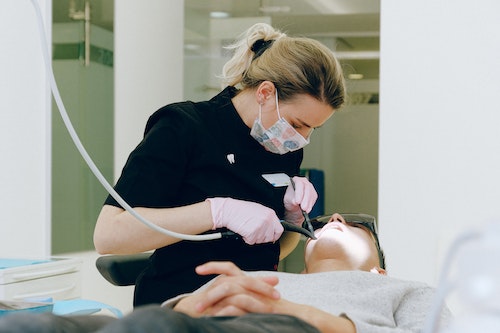Wisdom teeth, also known as third molars, typically emerge in late adolescence or early adulthood. While some people have enough space in their mouths to accommodate these extra molars, many others experience wisdom teeth woes due to impaction. Impacted wisdom teeth are teeth that fail to fully emerge through the gums or grow in at an angle, causing various dental issues. Dealing with wisdom teeth impaction often involves extraction, a common dental procedure. In this article, we will explore the causes of wisdom teeth impaction, the problems it can lead to, and how to cope with extraction.
Causes Of Wisdom Teeth Impaction:
Wisdom teeth impaction occurs when there is insufficient space in the jaw for these additional molars to grow in properly. The human jaw has evolved over time, and with changes in diet and eating habits, the need for extra molars has decreased. As a result, the jaw may not have enough space to accommodate the growth of wisdom teeth comfortably.
Types Of Impaction:
- Mesial Impaction: This occurs when the wisdom tooth grows in at an angle, leaning toward the front of the mouth. It is the most common type of impaction.
- Vertical Impaction: In this case, the wisdom tooth attempts to grow in a straight, upright position, but it doesn’t fully emerge through the gum line.
- Horizontal Impaction: This is when the wisdom tooth grows horizontally, pressing against the neighboring second molar.
- Distal Impaction: The wisdom tooth grows at an angle, leaning toward the back of the mouth.
Problems Caused By Wisdom Teeth Impaction:
Impacted wisdom teeth can lead to several oral health problems, including:
- Pain And Discomfort: Impacted wisdom teeth can cause significant pain and discomfort, especially when they exert pressure on adjacent teeth or the jawbone.
- Gum Infections: Partially erupted wisdom teeth create pockets between the gums and teeth, which can become breeding grounds for bacteria and lead to gum infections or abscesses.
- Crowding: Impacted wisdom teeth can push neighboring teeth, causing dental crowding and shifting of the teeth.
- Cysts And Tumors: In rare cases, wisdom teeth can develop cysts or tumors, potentially damaging the jawbone and nearby teeth.
- Tooth Decay: Partially impacted wisdom teeth can be challenging to clean, leading to an increased risk of tooth decay and cavities.
- Sinus Problems: Upper wisdom teeth that grow too close to the sinuses can cause sinus pain and congestion.
Coping With Wisdom Teeth Extraction:
When impacted wisdom teeth cause persistent pain or lead to oral health issues, dental professionals often recommend extraction. The extraction procedure is common and usually performed by an oral surgeon or a dentist with expertise in surgical procedures. Here are some tips for coping with wisdom teeth extraction:
- Preparing For The Procedure: Before the extraction, your dentist or oral surgeon will provide detailed instructions on how to prepare for the procedure. This may include fasting for a certain period before the surgery and arranging for someone to drive you home afterward, as the effects of anesthesia may take some time to wear off.
- Anesthesia Options: Wisdom teeth extraction is typically performed under local anesthesia, which numbs the extraction site. For more complex cases or anxious patients, intravenous (IV) sedation or general anesthesia may be used to ensure comfort and relaxation during the procedure.
- Post-Extraction Care: After the extraction, your dentist will provide post-operative care instructions to promote healing and minimize discomfort. This may include avoiding certain foods, practicing proper oral hygiene, and taking prescribed pain medications or antibiotics if necessary.
- Swelling And Discomfort: Some swelling and discomfort are normal after the extraction. Applying an ice pack to the affected area can help reduce swelling, and over-the-counter pain medications can alleviate discomfort.
- Soft Diet: Stick to a soft diet in the first few days after the extraction to avoid putting pressure on the healing extraction sites. Soups, yogurt, mashed potatoes, and smoothies are good options during this time.
- Follow-Up Appointment: Attend the follow-up appointment scheduled by your dentist to ensure proper healing and to remove any stitches if necessary.
In conclusion, wisdom teeth impaction is a common issue that can lead to various dental problems. Coping with impacted wisdom teeth often involves extraction, which is a routine dental procedure. If you experience persistent pain or other oral health issues related to your wisdom teeth, consult with your dentist or oral surgeon for an evaluation and personalized treatment plan. Following the extraction, proper post-operative care and adherence to your dentist’s instructions will help ensure a smooth recovery and promote the preservation of your smile and overall oral health.
